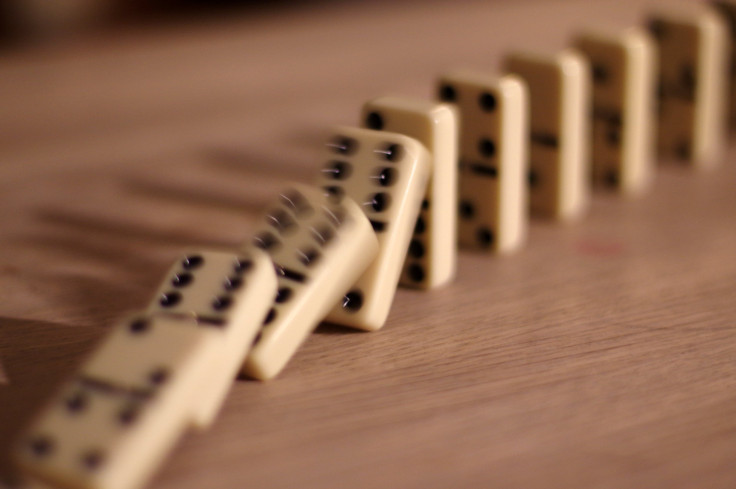Bad Behavior Causes A Domino Effect Of Negative Feelings; How To Stop Unfair Treatment From Spreading

You’re driving down the road with your spouse when, suddenly, you’re cut off by an aggressive driver. and you begin yelling at your innocent spouse. Recognize this unfair behavior? It’s a phenomenon called “generalized negative reciprocity,” and researchers from the University of Bonn in Germany decided to understand why people people who are treated unfairly usually unleash their anger on an innocent bystander. Their findings, published in the journal Scientific Reports, reveal a possible solution for disrupting the cycle of abuse.
"This emotionally charged situation causes the person who is treated unfairly to behave unfairly towards others in turn," said the study’s co-author, Dr. Sabrina Strang, a former researcher at the University of Bonn who now works at the University of Lübeck’s Institute of Psychology, in a press release. The sequence of unfair behavior will continue to compound unless it is stopped.
To figure out the most effective method for disrupting the domino effect of unfair behavior, Strang and her fellow researchers recruited 237 participants to play the “dictator game.” Of those participants, 24 were assigned to be dictators in control of a certain amount of money and were given the power to dole out the money to the other participants in their group however they’d like. A majority of dictators (83 percent) chose to unfairly distribute the money, keeping the lion’s share for themselves. Researchers who had surveyed the groups' temperament before the experimental game began found when they re-surveyed the group, the players’ moods had worsened.
"In such cases of unfair behavior, emotions are running high,” said the study’s co-author Dr. Bernd Weber, a researcher at the Center for Economics and Neuroscience at the University of Bonn. “Uninvolved outsiders are frequently drawn into the chain of injustice.”
Next, researchers divided the participants into three groups to test out different types of coping mechanisms. The first group took a break from the rest of the participants in hopes it would create emotional detachment from the dictator’s unfair behavior. The second group was asked to describe a neutral picture in order to distract themselves from the behavior that brought on their bad moods. The last group was given permission to write letters to the dictator venting their frustrations.
Researchers surveyed their emotions after they performed each coping mechanism and found those who wrote a letter were able to dissipate their anger. It didn’t even matter if participants knew whether or not the dictator actually received the letter, it just mattered that the letter was written in the first place. Being allowed to vent their frustrations while writing gave participants an outlet to express the unfair behavior they encountered, which ultimately dissipated any anger they could unfairly thrust onto an undeserving outsider.
Weber concluded: “Once the emotions decreased, the affected person generally starts to reassess the situation rationally.”
According to career-life coach and social worker Brad Waters, venting pent-up emotions through writing is one of the crucial steps towards building emotional intelligence that helps people maneuver through situations that may otherwise trigger negativity. By waiting and not jumping to conclusions, assessing the situation thoughtfully, recognizing the players at fault, and writing out the reasons for feeling angry, victims of unfairness increase the likelihood they won’t treat others unfairly.
Waters explained emotions can be more healthily expelled and expressed through writing. However, if writing fails, he recommends reaching out to a trusted outsider and explaining the situation in order to sort out the anger. This may help you arrive at a solution and ultimately an end to the unhealthy chain of unfair behavior.
Source: Strang S, Grote X, Kuss K, Park SQ, and Weber B. Generalized Negative Reciprocity in the Dictator Game—How to Interrupt the Chain of Unfairness. Scientific Reports. 2016.



























